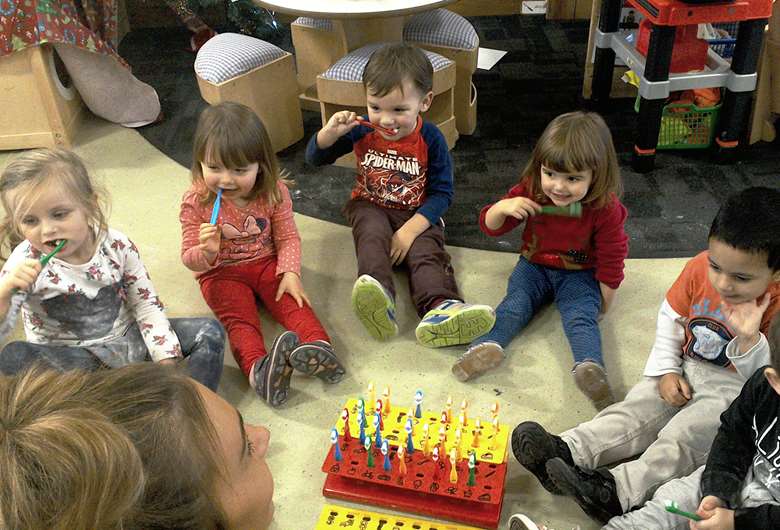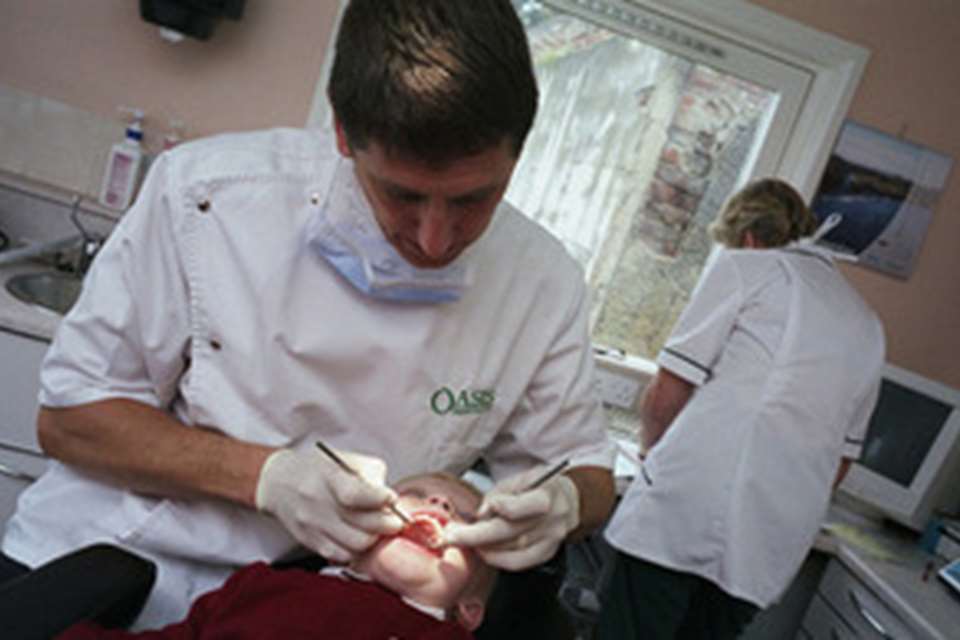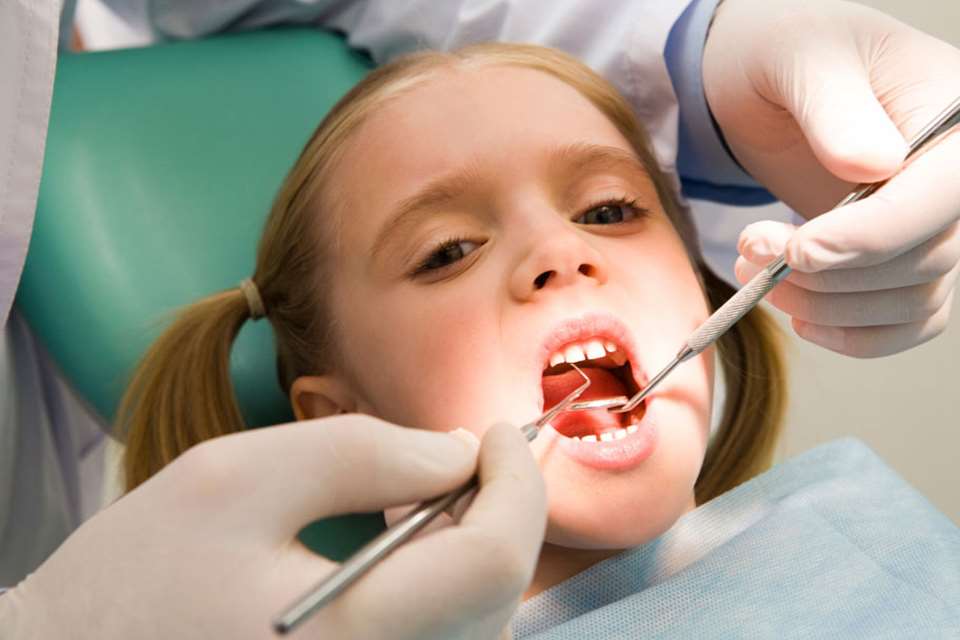Toothbrushing programme found to improve children's oral health
Tuesday, December 13, 2016
A toothbrushing programme in early years settings has made children less reluctant to clean their teeth.

Piloted in 68 nurseries and with 20 childminders from April, the Smiles4Children programme explored the best ways of getting children under five to brush their teeth during the nursery day. It also looked at how to involve parents and partnerships with dental surgeries.
The programme, which is continuing in participating settings, was a joint initiative between 4Children – now part of Action for Children - and Public Health England (PHE), designed to support awareness of oral health in two-, three- and four-year-olds and achieve a generation free from tooth decay. According to PHE figures, more than a quarter of five-year-olds are suffering from tooth decay.
The pilots, which ran in 4Children’s own settings (now owned by Action for Children), in nurseries operated by Bright Horizons and Toad Hall Nursery Group, and in childminder settings that are members of the Leap Ahead childminder agency, looked at the logistics of introducing tooth brushing into settings as a routine daily activity, considering the best time to do it, whether singing songs helped to make tooth brushing fun, and practical ways of storing children’s tooth brushes.
As part of the programme, participating settings attended two days of training taking them through techniques and ‘implementation’ ideas.
Most nurseries nominated a ‘programme champion’ to disseminate the information to colleagues and be a point of contact for parents.
A feasibility study of the pilots revealed that as a result of the programme, children who took part are less reluctant to brush their teeth at home. Also, the number of parents either attending or planning to attend a dentist with their child has increased.
The benefit of the programme to practitioners and parents was that they learnt more about toothbrushing techniques and appropriate types and amounts of toothpaste to use with children. According to guidelines, children from birth to three should use a ‘smear’ of toothpaste, while three to- six-year-olds should used a ‘pea sized’ amount.
Ahead of the programme, 27 per cent of both parents and practitioners were unaware of the suggested amount of time for toothbrushing, while 67 per cent didn’t know that you should not rinse your mouth after brushing.
Early years settings also learnt how to safely store children’s toothbrushes and found creative ways of storing, cleaning and labelling toothbrushes to reduce the risk of cross-infection. One nursery created a shark toothbrush holder out of an old carton.
Nursery managers and practitioners stated that daily toothbrushing was not seen as an additional burden, either financially or practically. The majority of settings (42 per cent) found it ‘very easy’ to incorporate brushing into their daily routine.
The annual costs of delivering the supervised toothbrushing programme in the study were £204.06 per year or £4.09 per child. These costs only included purchasing tooth brushes and toothpaste, paper towels and for printing the information booklet.
This is based on a full daycare setting with 50 children operating 51 weeks per year. Staff costs are not indicated as there is only a small additional impact on staff time as toothbrushing can be incorporated into daily routines.
However, the study identified a number of challenges of the programme, particularly if it is scaled up. It found that for nurseries, the biggest challenge was storage.
The brand of toothpaste used also presented a challenge in that many of the brands popular with children do not contain the appropriate concentration of fluoride (1,350-1,500 parts per million fluoride).
Following publication of the feasibility study, Public Health England has published a toolkit to support supervised toothbrushing programme in early years settings and schools.
Sue Robb, head of early years at Action for Children, said, 'There are a number of toothbrushing programmes available for early years settings, however unlike in Scotland and Wales where there are national programmes to improve children's oral health, there has not been a national voice in England.
'We were not surprised to learn the toothbrushing programme made a difference to both children, staff and parents, as it is based on the one used in Scotland - Child Smiles.'
'It is such a simple and easy approach, yet makes such an impact upon children's oral health.'
She added, 'We have already had a lot of interest in the programme from nurseries, but going forward we want as many early years settings as possible to see the report and consider using the programme with the children in their care.'
CASE STUDY
One of the participating settings, Fairfield Nursery in Stockton-on-Tees, County Durham (pictured), said that since taking part in the toothbrushing programme, parents have reported that their children are much better at brushing their teeth at home.
The nursery does dry brushing with the children, aged two to four, who all sit in a circle. A toothbrushing song is played while they brush and an egg timer times two minutes - the recommended brushing time.
Parents are also given information packs with leaflets on oral health and advised about not using dummies or giving children juice in bottles.
Manager Andrea Moore told Nursery World that making toothbrushing part of the daily routine has helped encourage the younger children to clean their teeth as they see the older children doing it.
- Settings interested in the toothbrushing programme should email Action for Children.








